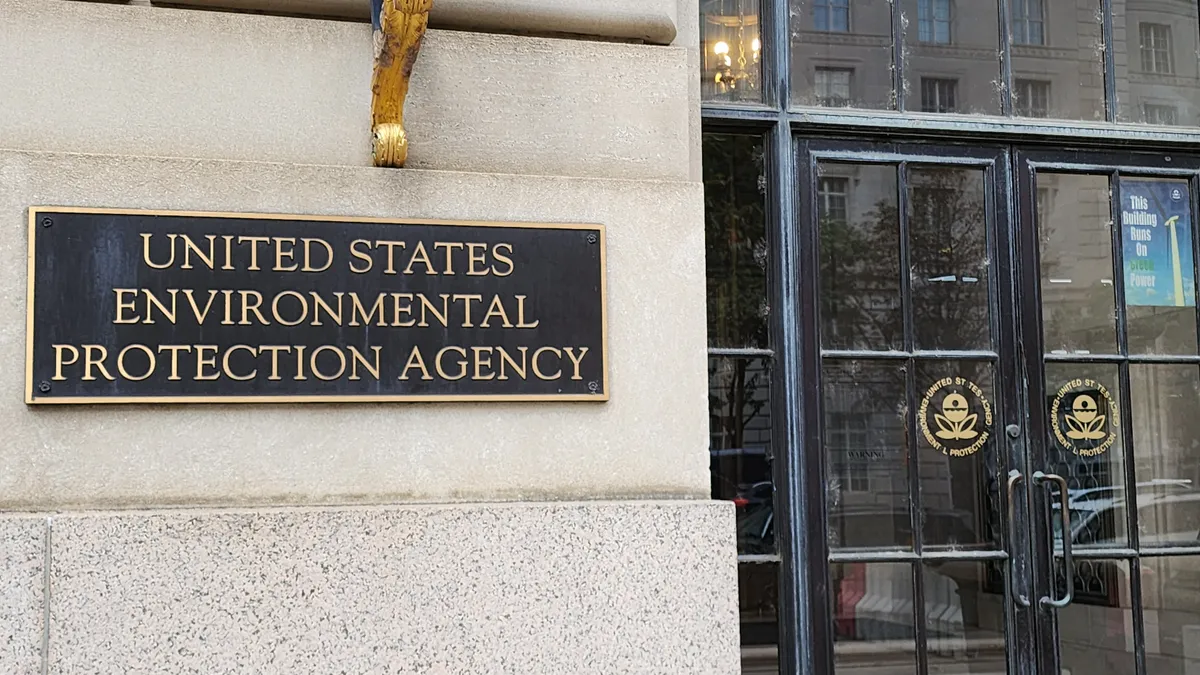UPDATE: May 14, 2025: The Environmental Protection Agency once again delayed its PFAS reporting rule implementation another year as it continues developing and testing software needed for data collection, the agency said Monday.
Most manufacturers will begin reporting the presence of PFAS in their supply chains on April 13, 2026, with a deadline of Oct. 13, 2026, according to the interim final rule. Manufacturers were expected to begin submitting information to the EPA on July 11, 2025 and had until Jan. 22, 2026. For qualifying small manufacturers, their deadline was moved from July 11, 2026, to April 13, 2027.
In March, Congress approved $17 million for the EPA to update its information technology system, helping it to more efficiently complete chemical reviews, according to a House Appropriations Committee report.
The EPA said the extra time will also allow the agency to gather critical feedback and additional guidance that could be useful for the reporting, as well as consider any additional modifications. The EPA will reopen the interim final rule’s comments in the Federal Register until June 12.
Sept. 18, 2024: Manufacturers now have more time before they must begin reporting the presence of PFAS in their supply chains to the Environmental Protection Agency — the agency delayed implementation of the rule for most manufacturers from Nov. 12, 2024, to July 11, 2025.
Companies were due to submit such information to the EPA by May 8, 2025, but will now have from July 11, 2025, until Jan. 22, 2026, according to the final rule, which falls under the Toxic Substances Control Act. For qualifying small manufacturers, their deadline was moved from July 11, 2025, to July 11, 2026.
The agency noted the change was due to a $5 million budget reduction and resource constraints, which hamper efforts related to meeting statutory deadlines.
The budget reduction cut into IT funds allocated for the Toxic Substances Control Act, which included the development of software needed for data collection related to PFAS reporting, the agency said. As a result, the software that will be used to collect PFAS data will not be ready by the original November 2024 implementation date.
There are no other changes to the rule and industry stakeholders have until Oct. 7 to comment on the pending regulation.
The National Association of Manufacturers and the American Chemistry Council lauded the EPA’s decision to delay the regulation. Still, the trade associations pushed back on the agency’s adoption of the reporting rule as hindering the industry.
“More broadly, [the] announcement reflects the massive administrative burden this proposal would impose on both the business community and regulators, while failing to provide insights for effective and prioritized public health efforts,” Chris Phalen, VP of domestic policy at NAM, said in a statement. “We urge the agency to reverse course entirely, unless and until it has the capacity to effectively enforce the standard.”
The ACC voiced its concern about the EPA’s collection of corporate information that could impede on trade secrets.
“ACC and its members are committed to enhancing the quantity and quality of information on PFAS, but we remain concerned with the overly broad approach and the unprecedented breadth of information being requested by this rule. PFAS are a diverse group of chemistries integral to thousands of products we use daily,” the chemical trade group said in a statement.
Editor’s note: The story has been updated to reflect new PFAS reporting submission dates.











